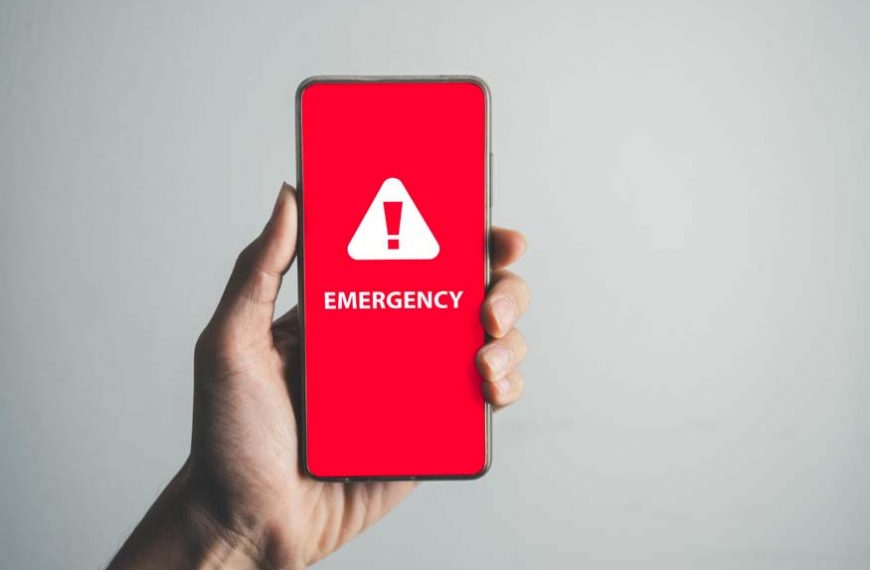Teaching Kids Emergency Numbers
Protecting our children is of utmost importance in today’s fast-paced world. Our guardians and parents must offer children the tools they need to handle unforeseen circumstances with assurance. Teaching kids to call emergency numbers is an essential skill that may make a big difference in an emergency. By teaching kids this ability, we equip them to take the initiative and ask for assistance when necessary. This article will discuss the value of educating children about emergency numbers, fun ways to introduce the idea to them, and the relevance of keeping an emergency phone nearby for your child’s protection.
Why Teach Kids About Emergency Numbers?
Imagine a situation where your child is at home alone and runs into a medical emergency or possible danger. The ability to call an emergency number can save lives in such circumstances. The notion that they have the ability to contact authorities who can assist them and a sense of responsibility is instilled in youngsters when emergency numbers are taught to them. Despite our best efforts, we hope they never have to use this talent, but it’s better to be ready than to find ourselves in a hopeless position.
How to Discuss 911 with Children:
Everyone should be aware of how to dial 911 in case of emergency. Children, however, also need to understand the specifics of an emergency. Asking children things like, “How would you react if there is a fire in the house?” You may talk about crises and what to do if one occurs by asking questions like “How would you react if you spotted someone attempting to break in?” Discussing the emergency personnel in your neighbourhood, such as police officers, firefighters, paramedics, physicians, nurses, and others, as well as what they do to assist those in need, may be beneficial for younger children.
When to Call 911?
Teach children that an emergency or 911 signifies someone needing immediate assistance due to an injury or a pressing danger. For instance, they ought to dial 911 if:
- There is a fire.
- Someone is rendered unconscious after an incident, excessive drinking, or a drug or medication overdose.
- Breathing becomes difficult, perhaps because of an asthma attack or a seizure.
- A person gets choked.
- They see a crime, such as an intruder, a mugging, etc.
- A major car accident occurs.
If a child needs to dial 911, they could feel anxious or afraid. Inform them that many children who call in fear or anxiety chat with the emergency workers who answer the phone. Tell them to remain as composed as possible.
Ensure your children understand that it is alright to depend on the 911 operator while not sharing personal information with strangers. Let them know that questions like: “What, where, and who” will be asked by the emergency operator, such as:
- “What exactly is the emergency?” maybe “What happened?”
- “Where do you live?” or “Where are you?”
- “Who requires aid?” or “Who are you with?”
They should give the operator as much detail as possible about the situation and what caused it. Explain to them that the emergency dispatcher may provide first aid instructions before emergency personnel arrive on the site if they are old enough to comprehend it.
Other Facts about 911:
- Make sure your children are aware of the fact that in many locations, phoning 911 in jest is illegal. Any prank call or pointless 911 call might delay the arrival of assistance for someone in need.
- Before dialling 911, children should ensure they are secure. For instance, kids should be aware to dial 911 before leaving home if a fire breaks out in their house.
- Even though the majority of 911 calls can now be tracked, it’s still vital that your children memorise your home address and contact information.
Other Safety Tips:
Further safety advice to bear in mind is provided below:
- The emergency number should always be given as “nine-one-one” rather than “nine-eleven.” If a kid attempts to locate the “11” key on the phone during an emergency, they cannot dial the correct number.
- To help emergency personnel like the police, fire department, or ambulance find your location, ensure your house number is immediately visible from the street.
- Make sure your youngster is aware of the unit number as well as the floor you reside on if you reside in an apartment complex.
- For your children or the babysitter, have a handy directory of emergency contact numbers close to each phone.
- Make sure your children and babysitters are aware of where the first aid kit is by keeping one nearby. When children are of sufficient age, teach them the fundamentals of first aid.
Engaging Activities to Familiarise Kids with Emergency Services:
- Interactive Games: Play engaging games with your child to introduce them to emergency services operations and capture their imagination. You may act out imaginary situations in which they are the “superheroes” who call the appropriate emergency number to rescue the day. To imitate the procedure, use toy phones or even real phones (without dialling anything). This makes studying enjoyable and eases any stress brought on by the thought of an emergency.
- Crafting Emergency Phone Posters: Use their imagination to create posters that prominently include emergency phone numbers. Encourage kids to develop symbols for various circumstances, such as a firetruck for fire emergencies or a medical cross for medical aid, and to use bright colours. These posters should be put up where people may see them at home to serve as a regular reminder of the emergency numbers.
- Storytelling Sessions: Tell your youngster short tales featuring characters in dire straits. Discuss how the characters handled the problem by calling the appropriate emergency number once you’ve finished the chapter. This method aids children in comprehending the context and emphasises the significance of emergency numbers in everyday life.
- Role-Playing Scenarios: Children’s learning can benefit significantly from role-playing. Your youngster can act out scenarios in which they are both the caller and the response. They are able to understand the procedure better and feel more at ease while dialling emergency numbers should the need arise, thanks to this practical experience.
The Significance of Having an Emergency Phone for Your Child:
Children are exposed to technology at a young age in the modern digital era. The appropriate age to give children their own phones is a topic of discussion, but it may be a good idea to think about getting a child-specific emergency phone.
- Instant Access to Help: A phone with pre-programmed emergency numbers guarantees that your youngster may immediately call for assistance. They no longer have to look for a phone, unlock it, and then dial the number— a time-consuming process in emergency situations.
- Peace of Mind for Parents: Giving children a phone they can use in an emergency might give parents peace of mind. It allows for continued communication and accessibility even while the youngster is away from home. Parents can be quickly informed and instructed on what to do in an emergency.
- Teaching Responsibility: A sense of duty comes with owning an emergency phone. Children discover that a phone is more than just a toy and should only be used in emergency situations. This underlines how crucial it is to know when and how to utilise the emergency numbers properly.
Teaching kids how to call 911 is an essential life skill in a society where crises may happen at any time. Toddler-friendly activities that introduce children to emergency services can help reduce their apprehension and give them the confidence they need to act when necessary. Parents can decide whether to provide an emergency phone for their child’s safety as another alternative to guarantee immediate access to assistance. We ensure our kids’ safety and confidence in dealing with unanticipated circumstances by giving them the information and resources they require. Do not forget that the time spent teaching kids these vital abilities might end up saving your life.
















